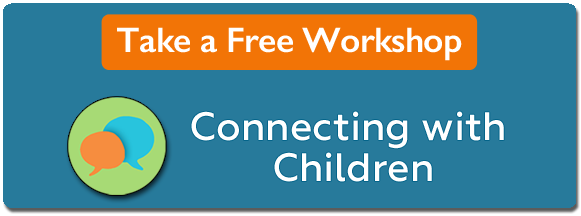
Children make us into adults, goes an old saying.
“That’s because,” Monica added, “they give us our most embarrassing moments.”
“For example, at gymnastics class the other day, Danielle, my three-year old, told the instructor she wasn’t going to get off the mat. She smarted off and told her instructor she was going to somersault as long as she wanted and the instructor couldn’t stop her. I was shocked at what came out of her mouth. Danielle’s tone was so ugly, I was taken off guard. I was, am, embarrassed by her behavior. I feel I’m responsible for it. At home she can be demanding, but I have never seen her act like this. I didn’t know what to do or say to make the situation better. I’m embarrassed Danielle could act that way.”
The three-year-old begins to make us “pay for our raising.”
They can say things that seem to come out nowhere putting us in awkward situations. One of my grandfather’s favorite stories about me (there were a few) was about taking me shopping. Driving home, we stopped at an intersection across from a police car. I stuck my head out of the window and yelled to the police officer, “Help! Help! A mean man is kidnapping me!”
My age: almost three years to the day. My granddad knew the officer, and from that day forward the officer always knew me. Officer Charlie used the incident as a teachable moment. He let me know that I should scream for help only if I needed it. He told my granddad, “Well, Earl, it sounds like she watched last week’s Highway Patrol.”
As adults, we’ve learned to tune out certain information.
Our three-, four- and five-year-olds are absorbing information from everywhere, trying to connect information with experience. At age three, since I saw it on television, I must have thought you yelled when you saw a police car. My mismatch of information and experience led to an embarrassing moment for my grandfather. Almost a heart attack according to him.
We can prepare our children indirectly for certain situations by giving short lessons before and after new experiences.
The teachable moment is rarely the moment when something undesirable is occurring.
In Monica’s situation, before gym class, she could give Danielle a lesson on “how to say no respectfully,” or a lesson on “how to do what your teacher asks.” Monica could also tell the gym teacher that she expects Danielle to follow directions and be respectful. If Danielle is disrespectful during class, she could ask the instructor to give Danielle a friendly reminder by saying, “Remember, Danielle? I am the teacher, and your mom wants you to do this cheerfully.” In some instances, removing a rebellious child may be indicated to avoid disruption of the class.
We also need to make sure we have realistic expectations for behavior.
In Danielle’s gymnastic class, the instructor may not be considering the learning style of three-year-olds. There may be too much emphasis on following directions instead of exploring movement. We need to make expectations for behavior clear to both our children and the other adults in their lives.
Before entering a new situation with your child, think of the information that is necessary for a successful experience. Monica could have watched the gym class to help Danielle prepare for a new situation and visited the instructor beforehand to discuss expectations for Danielle’s behavior, along with a game plan for dealing with uncooperative behavior.
There will always be embarrassing moments with our children. Being prepared and looking for the teachable moment may lessen the sting. Perhaps we’ll also have a humorous incident to tell our grandchildren.


I’ve recently signed my almost 3 year old up for a gymnastics class with an older friend (4 years old). The class is mainly 3 and 4 year olds. At our trial class today, Lily had trouble, especially towards the end, sticking with the class. The instructor isn’t concerned because the class is small. But part of me wonders if I’m just pushing this a little. My daughter definitely likes the idea of that class with a friend and throughly enjoyed it today. However, if we took a mommy-and-me class, she would be able to explore more and necessarily need to stick with what the course is doing part of the time. I have read one of your prior posts on young children and sports, and I found your point compelling about letting younger children explore movement apart from formal classes or teams. Maybe I’m looking for confirmation that waiting 6 months (or even longer) to try the classes again might be better for Lily–even if she (and I because I get to chat with the friend mother) wants the class now.
To clarify, when I wrote, “sticking with the class,” I really mean, following directions. I can see a teachable moments before the classes as well as the teacher before the class. However, the class structure depends on the children following specific directions for the flow of the class. The children do get to explore movements as part of the class, but only as directed by the teacher.
Ruth,
Watch. Watch and see if Lily enjoys the class and if she doesn’t get frustrated.
If you have a basically happy child, great.
If you see that she is frustrated because her “inner teacher” is asking to do something else, then consider if the class is the right thing at this time.
Also, you can encourage her to do some of the movement exercises from the class at home to allow more movement and freedom of expression.
Hope that helps!